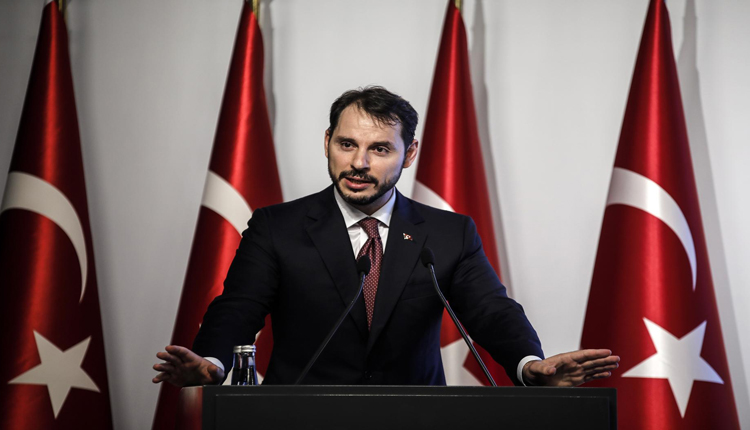Turkey’s finance minister rolled out the government’s new economic plan on Friday, promising central bank independence and tighter budget discipline, but giving few details to reassure investors and stem a widening currency crisis.
In a nearly hour-long presentation to business leaders in Istanbul, Berat Albayrak promised structural reform, economic rebalancing and “sustainable and healthy growth”, without spelling out precisely what the government planned to accomplish or how.
“The independence of the central bank is extremely critical for our economy,” Albayrak said. “Securing the full independence of monetary policies – this is very important.”
Turkish President Tayyip Erdogan, a self-declared enemy of interest rates, has repeatedly called on the bank to lower them, intensifying investor concern that its monetary policy is formulated under political influence. Turkish inflation hit a 14-year high of nearly 16 percent last month.
Albayrak did not spell out concrete steps to cushion the free-fall in the lira, now in the throes of a full-blown currency crisis, but said the focus should be on the “big picture” instead of day-to-day events.
“With strong communication, we will in a robust way work to boost confidence in the Turkish lira,” he said.
The lira’s sell-off accelerated after U.S. President Donald Trump said Washington would double down on steel and aluminum sanctions against Turkey.
The currency fell more than 20 percent at one point, its biggest one-day drop since Turkey adopted a floating-currency regime in 2001.
“The new period will be one in which a health and sustainable economic growth will be crucial,” said Albayrak, President Tayyip Erdogan’s son-in-law.
“I have said before that I don’t see inflation and growth as alternatives to each other.”
Erdogan’s grip over monetary policy, as well as the widening rift with the United States, sparked the currency crisis. But it is the tensions with the United States that have weighed heavily in recent days.
Trump said on Friday he had authorized higher tariffs on imports from Turkey, imposing a 20 percent duty on aluminum and 50 percent on steel, as tensions mount over Ankara’s detention of an American evangelical pastor and other diplomatic issues.
The United States is seeking the release of Andrew Brunson, arrested in 2016 and currently under house arrest in western Turkey, and is tussling with Ankara over the detention of three Turkish U.S. consular staff, trade issues and differences over Syria.
source: Reuters
